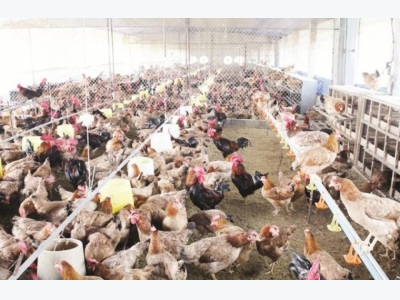The livestock sector is heavily influenced by CPTPP

With the Comprehensive and Progressive Agreement for Trans-Pacific Partnership (CPTPP), while a large number of exporters are motivated to boost exports, the livestock sector will face difficulty, even fight in the "domestic market".
Focusing on strengthened products is a viable option for livestock industry in the context of CPTPP.
Weak competition
Speaking to the reporter of Customs News, Mr. Tran Toan Thang, Head of the World Economy Department, National Center for Socio-Economic Information and Forecasting (NCIF), Ministry of Planning and Investment said: The livestock sector is heavily affected by the CPTPP because its competitiveness is weak. In agriculture, the current tariffs of countries with livestock products are not high. Thus, lowering tariffs in CPTPP does not create much export impact.
With regard to this issue, Mr. Hoang Thanh Van, Director of the Department of Livestock Development (MARD) analyzed in more detail: In recent years, despite the efforts of the animal husbandry sector to improve the breeds and reduce production costs, in fact the price of animal products is still high. For example, the cost of pork production in Vietnam is currently at VND 32,000 - VND 35,000 / kg. Meanwhile, this number in many countries it is under VND 30,000 / kg. "When the CPTPP agreement comes into force, the tariff rate is 0%, the livestock products of countries with strong livestock such as Canada, Japan, Australia will flood into Vietnam. Not only raw products but many processed products of animal industry will come into Vietnam. Since the CPTPP Agreement is in effect, only products registered with the national brand can be exported to all countries in the CPTPP, without quota. Foreign livestock products are quite diversified. This will gradually change the way people consume, negatively impacting domestic production", said Mr. Van.
The livestock sector will face difficulty when CPTPP comes into effect. Thus, Dr. Nguyen Do Anh Tuan, Director of the Institute for Policy and Strategy for Agriculture and Rural Development, Ministry of Agriculture and Rural Development said: Recently, tariffs for animal products are still high, but the import value of these products still speeds up. The key is that domestic production capacity has not caught up with consumer demand. Besides, the quality and price of products in the country are not competitive with imports. Now, in the future, when the tariff barrier is lifted, right in the domestic market, Vietnam's livestock products will face more drastic competition, as in the case of beef and milk from Australia, New Zealand; and pork and chickens from Canada.
Choose the direction to develop
To be fair, CPTPP also gives the livestock industry some positive impact. According to Mr. Van, the pressure from the CPTPP forced the domestic enterprises to change management methods. Equipment for animal husbandry imported into Vietnam will also be reduced in tax, and production costs will be also reduced. In addition, another positive point is that the products of Vietnam such as pork in Mong Cai, and H'mong chicken can be exported to other countries.
"In the past, when exporting animal products, it took 6-12 year. However, when the CPTPP comes into effect, the time will be shortened. In fact, the import standards of these countries are still quite high, so enterprises should accept and find improvement measures to export. Some domestic enterprises showed that they were not afraid of CPTPP. The key is to quickly change the institution so that businesses bravely develop, enhance competitiveness. According to Mr. Van, the addition of the CPTPP can also be seen as an increase in the chance of attracting foreign investment. Vietnam's agricultural market is quite attractive. Many domestic and foreign enterprises want to invest in breeding, including genetics.
To be more specific, Mr. Tong Xuan Chinh, Deputy Director of the Department of Livestock Production, said that Vietnam must choose to develop products with competitive advantages such as pork, poultry for eggs, and honey. This is due to the fact that poultry processing environment is easy with a short rotation. In addition, Vietnam has a variety of breeds, especially native chicken varieties such as Dong Tao chicken to meet the needs of domestic consumers.
In this regard, Dr. Nguyen Do Anh Tuan said that the livestock industry in Vietnam should focus on developing products in the less competitive segment of imported products such as milk, chicken feathers, and waterfowl. In general, Vietnam's livestock industry still needs to promote the construction of closed value chain from production to consumption in order to improve quality, reduce costs, and increase competition with imported products.
Related news
 Tan Yen yields about 160 tonnes of star apple fruits
Tan Yen yields about 160 tonnes of star apple fruits There are about 20 hectares growing the star apple fruit under VietGAP ready to be harvested in the whole district of Tan Yen, Bac Giang province.
 Hanoi to implement measures for agricultural development
Hanoi to implement measures for agricultural development Hanoi has recently organized a conference to review the task in the first quarter of 2018 and deploy key missions in the last months of the year.
 US workshop boosts Vietnamese agricultural export
US workshop boosts Vietnamese agricultural export Total rice exports for the year reached 5.89 million tonnes, earning 2.66 billion USD, a year-on-year surge of 22.4 percent in volume and 23.2 percent in value.